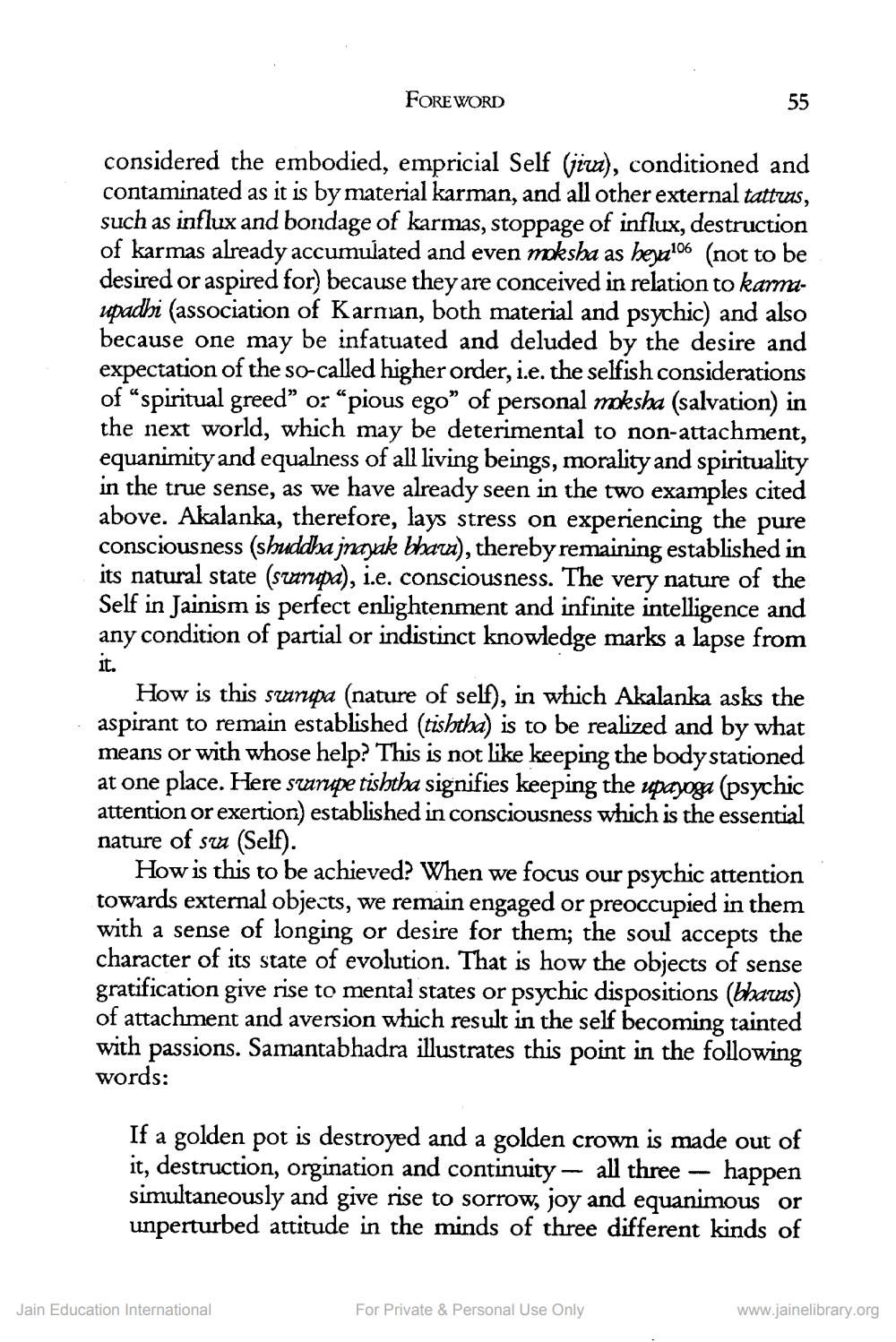________________
FOREWORD
55
considered the embodied, empricial Self (jira), conditioned and contaminated as it is by material karman, and all other external tattias, such as influx and bondage of karmas, stoppage of influx, destruction of karmas already accumulated and even moksha as heja106 (not to be desired or aspired for) because they are conceived in relation to karmawadhi (association of Karnan, both material and psychic) and also because one may be infatuated and deluded by the desire and expectation of the so-called higher order, i.e. the selfish considerations of “spiritual greed” or “pious ego” of personal moksha (salvation) in the next world, which may be deterimental to non-attachment, equanimity and equalness of all living beings, morality and spirituality in the true sense, as we have already seen in the two examples cited above. Akalanka, therefore, lays stress on experiencing the pure consciousness (shuddha inayak bhava), thereby remaining established in its natural state (srarupa), i.e. consciousness. The very nature of the Self in Jainism is perfect enlightenment and infinite intelligence and any condition of partial or indistinct knowledge marks a lapse from
How is this suarupa (nature of self), in which Akalanka asks the aspirant to remain established (tishtha) is to be realized and by what means or with whose help? This is not like keeping the body stationed at one place. Here scarpe tishtha signifies keeping the upazoga (psychic attention or exertion) established in consciousness which is the essential nature of sza (Self).
How is this to be achieved? When we focus our psychic attention towards external objects, we remain engaged or preoccupied in them with a sense of longing or desire for them; the soul accepts the character of its state of evolution. That is how the objects of sense gratification give rise to mental states or psychic dispositions (bharas) of attachment and aversion which result in the self becoming tainted with passions. Samantabhadra illustrates this point in the following words:
If a golden pot is destroyed and a golden crown is made out of it, destruction, orgination and continuity – all three – happen simultaneously and give rise to sorrow, joy and equanimous or unperturbed attitude in the minds of three different kinds of
Jain Education International
For Private & Personal Use Only
www.jainelibrary.org




